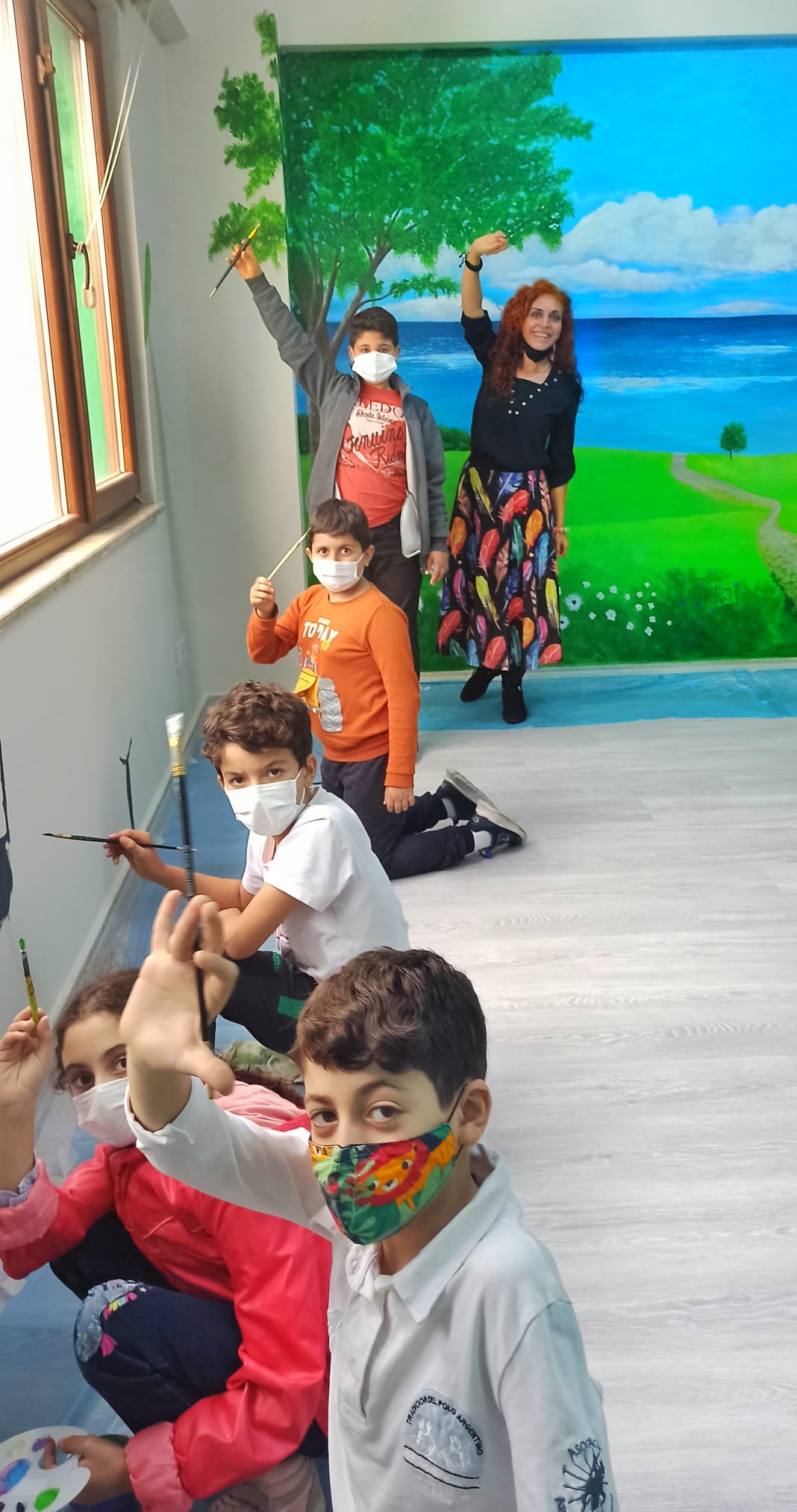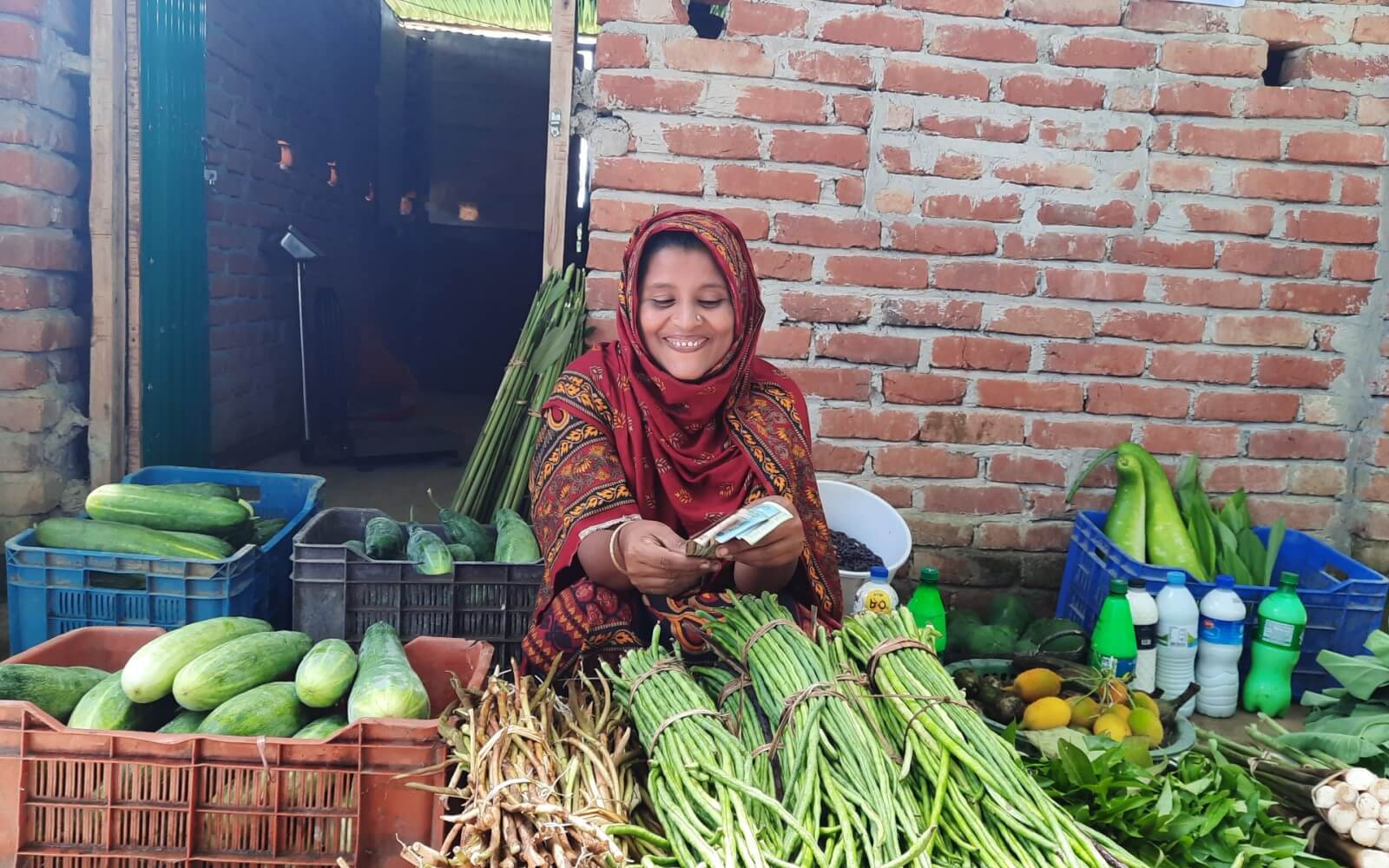RESLOG Turkey
RESLOG Turkey
Resilience Assessment Study with the Pilot Municipalities
The project in brief
Implemented by
The Swedish Association of Local Authorities and Regions (SALAR) - Sweden
Country
Turkey
Duration
January 2018 - December 2021
Description
RESLOG (Resilience in Local Governance in the face of Syrian Migration Crisis) aims at improved dialogue, and strategic capacity for resilient and inclusive local governance.
The overall objective of RESLOG Turkey is to contribute to enhanced policy framework, improved dialogue, and strategic capacity for sustainable and resilient local governance in Turkey.
The project operates at local, regional, national and international levels with multiple components and activities focusing on capacity-building for municipalities and their unions in policy making, knowledge generation and dissemination, migration master planning and implementation to reach this overarching objective.
Project aims
- contribute to developing national migration policies that reflect local realities and needs,
- strengthen inter-municipal learning and support structures through regional unions, and
- improve integrated municipal planning and holistic governance at the municipal level.
Resources used
Sweden’s Regional Strategy for the Syria Crisis 2016–2020, the Swedish Association of Local Authorities and Regions (SALAR) through its affiliate SKL International carried out a study on resilience in local governance in Syria’s neighbours. Work was conducted between August 2016 and April 2017.
Work was guided by and relates to Agenda 2030, principles of Swedish development cooperation policy in general and Sweden’s Regional Strategy for the Syria Crisis 2016–2020 in particular.
Main activities of the Good Practice
At the national level, RESLOG Turkey, in partnership and coordination with the Union of Municipalities in Turkey (UMT), established the Mayors’ Platform for advancing National Migration Policy. The project brings the mayors of cities most affected by migration together to produce a policy paper for increased representation of the local level in national migration policy.
Together with the Mayors and the technical teams of 13 Municipalities (district and metropolitan), a National Migration Policy and Strategy (NMPS) document is developed. The document puts the wealth of the rich experience of the municipalities at use with 2 Mayors’ Roundtables and 3 Municipal Technical Teams Meetings.
NMPS was introduced to public and government authorities with a dedicated launch and networking event in November 2021.
At the regional level, through “knowledge generation activities” RESLOG Turkey supports municipalities in understanding and responding migration-related urban challenges. Unions of Municipalities are the main mediators of this process. The pilot implementation was achieved in partnership between the Marmara Municipalities Union (MMU) between 2018 and 2021.
Knowledge Generation Book Series I and II consisting of 17 publications developed in collaboration with various national and international experts, introduces the municipalities to existing and emergent perspectives, trends and intervention tools; combining them with the everyday experiences of the municipalities, which could positively affect the perspective and practices of local decision-makers for more inclusive governance and planning. These include cross-cutting issues that needs to be taken into consideration in each and every action such as gender, climate change, SDGs, right to participation and active citizenship.
The series also include a Municipal Experiences Sub-Series: thematic working groups of municipal officials from all around Turkey prepared 3 books under RESLOG supervision and presented their experiences on welcoming mass migration, social cohesion and co-habitation and social services.
Bi-monthly Knowledge Generation Meetings (in forms of workshops, panels, seminars) for co-learning, experience exchange and/or co-production present the municipalities with the themes covered in the Knowledge Generation Book Series through an interactive platform that fosters knowledge generation and a platform for dissemination.
RESLOG Turkey also supports the Marmara Municipalities Union (MMU) with Migration Policy Centre (MPC) Capacity Development Activities. The activities frame future activities of the MPC in a planned and organized way with the development of a Strategic Road Map and supporting the preparation of the first ever Migration Certificate Program in Turkey targeting municipalities.
At the local level, RESLOG Turkey supported the preparation of Migration Master Plans in 12 pilot municipalities, initiated a problem prioritization study and enabled the engagement of selected activities with the municipal strategic plans. Subsequently, each municipality prepared small scale action projects. A detailed analysis, project development, monitoring, implementation and reporting process was supported by REGLOG experts on local governance, civic participation, gender, cohabitation and project development.
Find out more about the municipal Small Actions and/or COVID-19 Response Support Projects.
Partners
The Swedish Association of Local Authorities and Regions (SALAR) is the implementing agency of RESLOG Turkey.
In Turkey, SALAR partners with:
The project has actively supported capacity development processes in 12 municipalities in Marmara and Çukurova regions. RESLOG Turkey pilot municipalities, which has displayed great dedication to the implementation process, are Adana Metropolitan Municipality, Hatay Metropolitan Municipality, Mezitli Municipality, Reyhanlı Municipality, Sarıçam Municipality and Seyhan Municipality in Çukurova Region, and Bursa Metropolitan Municipality, Orhangazi Municipality, Osmangazi Municipality, Sultanbeyli Municipality, Şişli Municipality, and Zeytinburnu Municipality in Marmara Region.
Results of the Good Practice

RESLOG Turkey adopted a structural approach, which targeted strengthened municipal capacities that can further support the lives of refugees and host communities through advancement in analysis, planning, inclusive service delivery, project development and implementation for peaceful co-habitation. Results were achieved at three major levels.
National Level:
- Strengthened policy advocacy which reflects local realities and needs
- Increased municipal capacities of collective policy making, representation and lobbying at the national level
- Strengthened horizontal dialogue and thematic cooperation between UMT and regional unions
Regional Level:
- Strengthened inter-municipal learning and support structures through regional unions through co-creation, democratic platforms of discussion, experience exchange, peer-learning and interactive learning
- Increased reach to up-to-date methodologies and perspectives for planning and participation
- Improved preparedness municipalities to respond to migration related urban challenges
- Improved preparedness of regional unions to address the challenges their members face
- Development of an expert pool in the field that is cross-cutting migration, urban planning and local governance
Local Level:
- Improved integrated planning and holistic governance at municipal level
- Improved engagement of local civil society structures, including NGOs/CSOs and Citizen
- Assemblies, inclusiveness of municipalities and effectiveness of Citizen Assemblies (12 municipalities)
- Strengthened capacity of municipalities to address social and economic migration related challenges
- Strengthened capacity of participatory project development, monitoring, implementation and reporting
How the project meets the GCR Objectives
Objective 1: Ease the pressures on host countries
Drawing on competences and the baseline (existing capacities of personnel, finance, data and knowledge), and focusing on interactions between levels, actors and sectors, the project:
- supported the municipal needs assessment for inclusive service delivery and peaceful cohabitation of refugee and host communities, and
- defined the relevant actors and supported the establishment of a strengthened co-working culture between regional unions, municipalities, civil society actors, refugee groups and relevant central government actors.
- extended transformative capacities of local governments in Turkey through introducing holistic planning and implementation methodologies and a comprehensive knowledge base in the field cross-cutting migration, urban planning and local governance.
While doing that, the project addressed a significant gap in multi-level governance of migration in Turkey.
Next steps
Attempts for further and future collaboration is in progress.
Submitted by:
Gül Tuçaltan, National Project Coordinator and the Lead of Knowledge Generation Activities, SALAR – RESLOG Turkey




